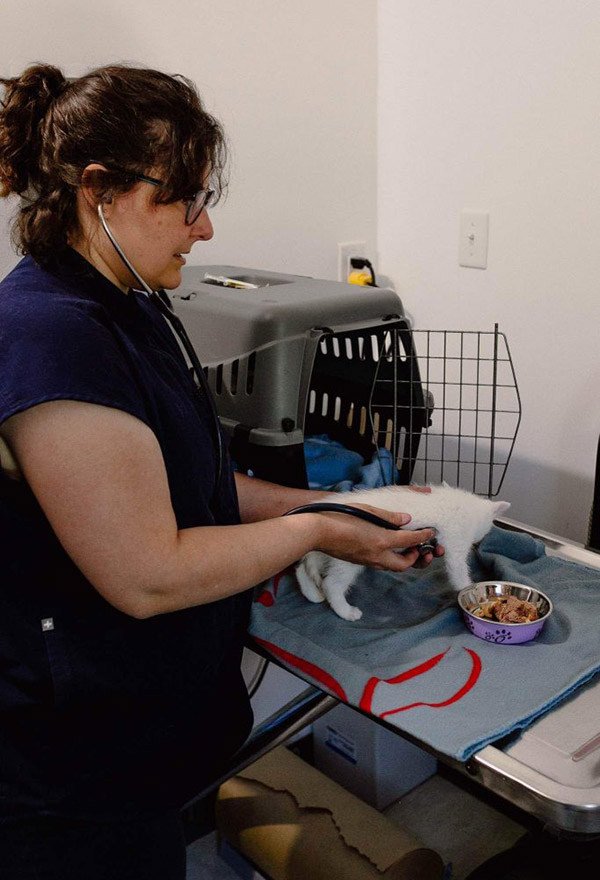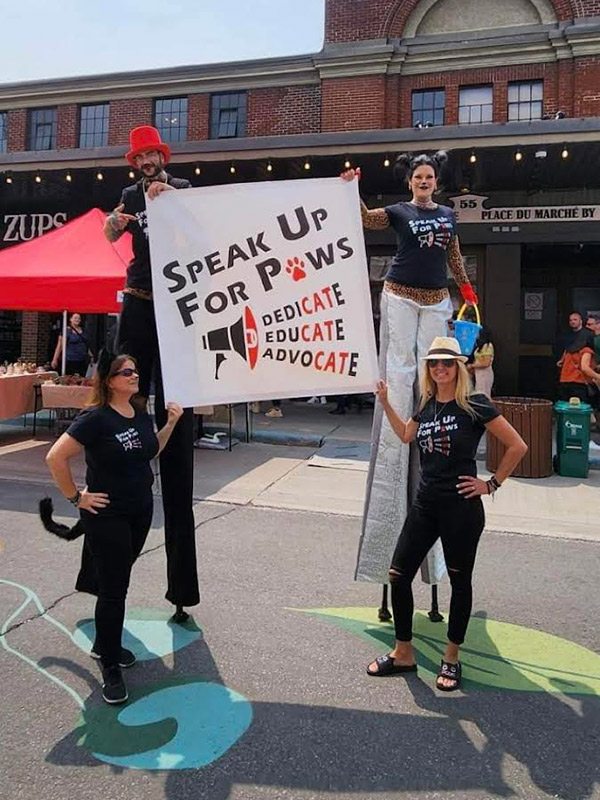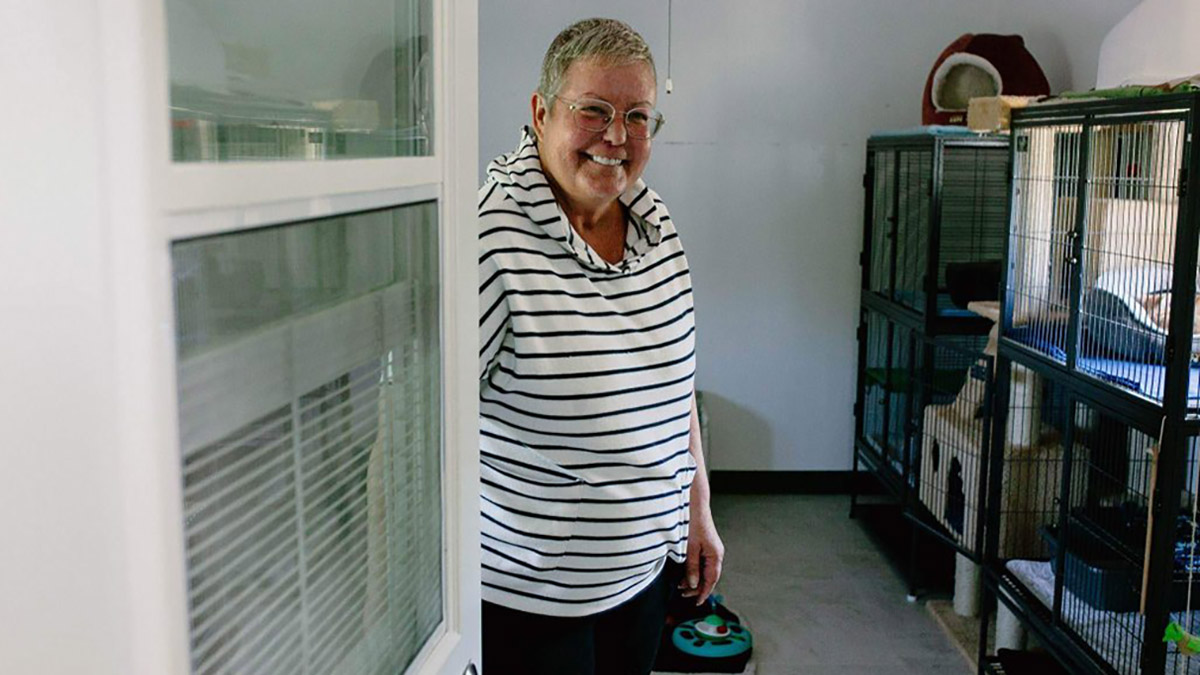The Facebook posts are designed to pull at the heartstrings. “On Aug. 22, a cardboard box arrived at the cattery containing two pitiful looking kittens. This is how we met Salsa. She was in terrible condition, severely underweight and it absolutely broke our hearts to see a young kitten in such a dire state.”
Or: “What is black and white and cute all over?? Why it’s Daisy and Donna, of course! These two 11-month-old ladies are searching for their forever home and they are hoping, it might just be with you!!”
A steady stream of posts from Furry Tales Cat Rescue features pictures and stories about cats in need of adoption. But these are difficult times for the people who help find homes for stray or abandoned cats.
The cat rescue location is full, because too many people have neglected to spay and neuter their cats, said Tanya Ursual, social media lead of Furry Tales Cat Rescue. People cannot keep extra cats, so they either surrender cats to rescues or leave cats on the street.
Furry Tales Cat Rescue alone receives 10 to 20 surrendering requests every day, said Ursual, but they aren’t alone — all the cat rescues in Ottawa are facing a flood of cats to rescue.
Furry Tales Cat Rescue saves more than 1,000 cats a year, according to Ursual, and all members working at the rescue are volunteers.
“We all have full-time jobs. We all have our own lives, but we are doing this because if we don’t, the cats will have nowhere to go,” said Ursual.

For Adopt Me! Cat Rescue, a smaller cat rescue in Ottawa, the lack of funding to spay and neuter rescued cats is also an issue.
“We are getting less money from donations because people are struggling. But the vets have increased all their prices, and many of them have decreased their hours,” said Sandi Lawson, owner of Adopt Me! Cat Rescue.
At animal hospitals, the surgery for a female cat often costs more than $700 before tax. The City of Ottawa Spay/Neuter Clinic offers a cheaper price, with $245 including tax, but it has a 10-month waitlist. Many animal hospitals also have waitlists for several months.
“Clearly, vet clinics are not meeting the demand of the public (to spay and neuter cats) as well,” said Ursual.
Lawson says she cannot find a cheap and accessible spay and neuter clinic in Ottawa. Her rescue works with a clinic in Brockville instead.
The pregnancy for cats is very short. On average, a female can have three litters of kittens in a year, with four to seven kittens in each litter, according to Lawson.
“That’s a lot of cats. They obviously don’t all survive now. If they did, it would be crazy,” said Lawson.

In February 2022, she wrote a letter to the City of Ottawa to seek help for cat rescues. She is still waiting for a response.
In the letter, she said 14 of the 27 rescues in Ottawa rescued and adopted out 4,239 cats a year. Rescues typically report receiving five to 10 calls a day during kitten season and two to four calls off-season. Rescues are saving much more cats this year, she added.
Lawson also started Speak Up For Paws, a secondary non-profit organization, to advocate and educate people about the importance of spaying and neutering cats.
People should only take in cats when they know they can afford to spay and neuter, and they should keep unneutered female cats indoors, said Ursual.
She also advises people to microchip their cats. When cats get out by accident, and somebody finds them, vet clinics can scan cats for free and return them to their owner, she said.
Abigail Lane, a student from Carleton University, says she enjoyed having a pet as a companion. Her family has adopted a cat from the Ottawa Humane Society.
“I remember picking out the most playful kitten. She was jumping around and meowing, just asking to be taken home,” said Lane. “I definitely recommend adopting from the Humane Society or a rescue shelter. They are in need of homes.”




